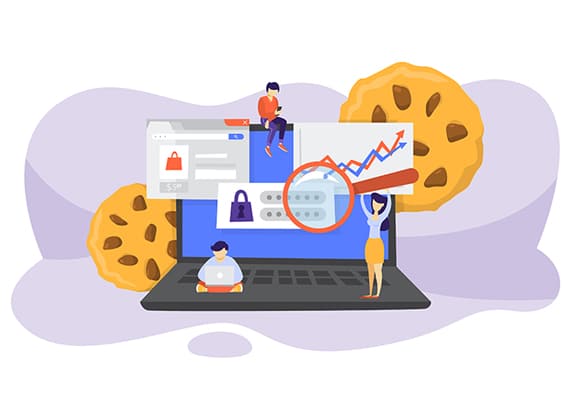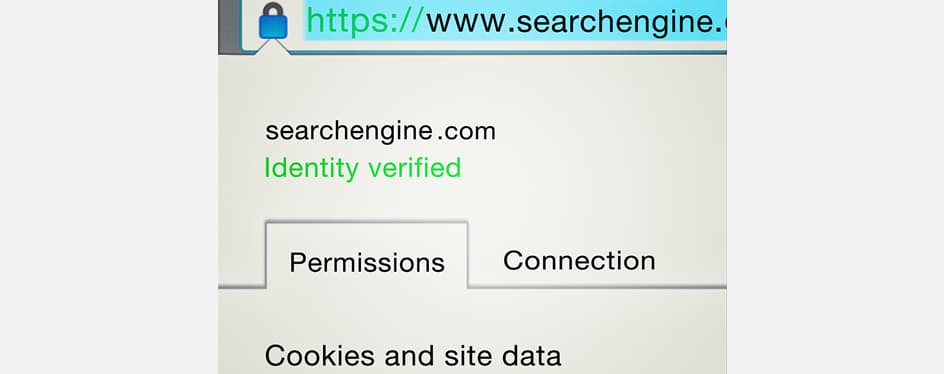What You Need to Know About Google Eliminating Third-Party Cookies
Jun 3, 2021 | 3 MINUTES TO READ

Summary: As Google moves to eliminate third-party cookies, the way marketers, advertisers, and online shops do business will change. Learn what this could mean for you.
Last year, Google announced plans to eliminate third-party cookies from their popular Google Chrome browser. They recently reaffirmed their commitment to this plan, signalling marketers to begin transitioning away from this soon-to-be-discontinued technology.
This change will not be fully implemented until 2023. However, its impact will be profound. Now is the time to learn what these cookies do and how you can prepare for the coming cookieless future.
What Are Third-Party Cookies?
Third-party cookies are generated by domains or advertisers and placed on various websites. They hold information about the activity of visitors to each site and synthesize their browsing data across the web. This allows companies who use third-party cookies to get an extremely detailed look at the interests and behaviour of internet users, resulting in highly personalized marketing.
Say you were planning a camping trip. You search the web for a specific tent and check a few sites to compare prices. While browsing online later, you see advertisements for one of the websites you visited showing that exact tent. If the site you see the ad on is not owned by the company in the ad, it was likely shown to you based on third-party cookie data.
Though some people may think nothing of this, others feel these cookies are irritating or an invasion of privacy. As the ads can appear on various pages throughout the web, including social media, it can be hard to predict where you will see them. Ads for engagement rings, for example, may ruin your surprise proposal if your partner sees them while checking the weather on your phone.
The Elimination of Third-Party Cookies
As data concerns grow around the world, the call for stricter rules surrounding third-party cookies has increased. They are already blocked on some of Chrome’s most prominent competitors, including Safari and Firefox.

Google has stated that they consider this to be a proactive move in the face of the public’s changing attitudes toward privacy. They will be working with advertisers to slowly implement changes for minimal market disruption.
By eliminating third-party cookies, companies will no longer be able to access users’ browsing activity and interests across multiple websites within the Google Chrome browser.
What Does This Mean for Advertisers?
Without third-party cookies, companies will no longer have easy access to the same in-depth information on their customers. However, this does not mean that they will have no access to customer information whatsoever.
Google’s current plan is to allow the collection of user data on a broader level using technology like Federated Learning of Cohorts to group customers based on similarities in their browsing data. You could then fit individual customers into generalized buyer personas like a digital marketing agency might do. This would allow businesses and digital marketing services to leverage customer data in a similar way to what is currently being done with third-party cookies but without the same level of deep personal specificity.
First-Party Cookies Are Here to Stay
Advertisers will be happy to know that they can also still use first-party cookies to track things that users do on their websites. Marketers use these to collect basic information on users, such as what pages a user visited and whether they were using a mobile device or a desktop connection.
These bits of data are not sufficient to create deep psychological profiles or even slot users into a buyer persona, but they are enough to run simple yet effective remarketing campaigns. If companies want more information on their users, they will have to convince them to provide it. If they are unsure of how to do this, they can always turn to a marketing agency for help.
The Future of Digital Advertising
Now that Chrome has moved to abandon third-party cookies, it is clear that this technology’s days are numbered. Advertisers who are still relying on it must take steps to remove third-party data from their practices and begin to incorporate new marketing methods, such as hiring a professional SEO agency.
Since leveraging third-party cookies will soon no longer be an option, it is more important than ever for businesses to keep up with new ways of advertising and promoting themselves online. WSI Comandix is a leading digital marketing agency serving Toronto and the GTA with plenty of up-to-the-minute marketing knowledge. Subscribe to our email list today to get top digital marketing tips in your inbox every week.
Also Read:
Don't stop the learning now!
Here are some other blog posts you may be interested in.
VIEW ALL BLOG POSTS-
Important Lessons for Marketing Your Business in a Post-Coronavirus World
Like many of you reading this, I’m writing this blog post in self-isolation. Not because of any viral symptoms …
READ MORE -
How to Know If Core Web Vitals Are Affecting Your Search Rankings
If you follow marketing news in any capacity, you have probably heard about the new core web vitals update (also called the page experience update). This search …
READ MORE -
Preparing Your eCommerce Business for the Cookieless Future
Now that Google has announced that their Chrome browser will no longer support third-party cookies in 2023, some …
READ MORE









